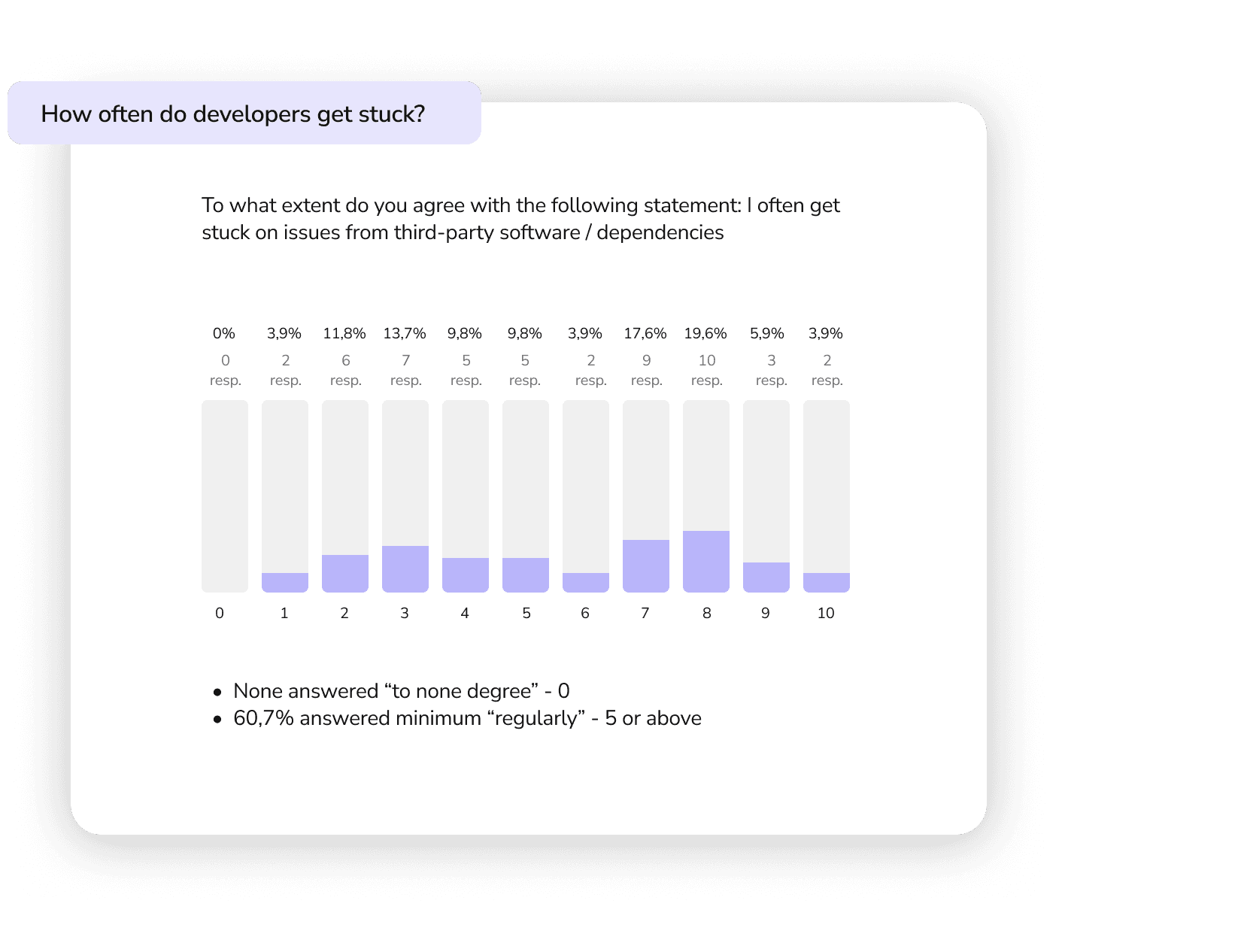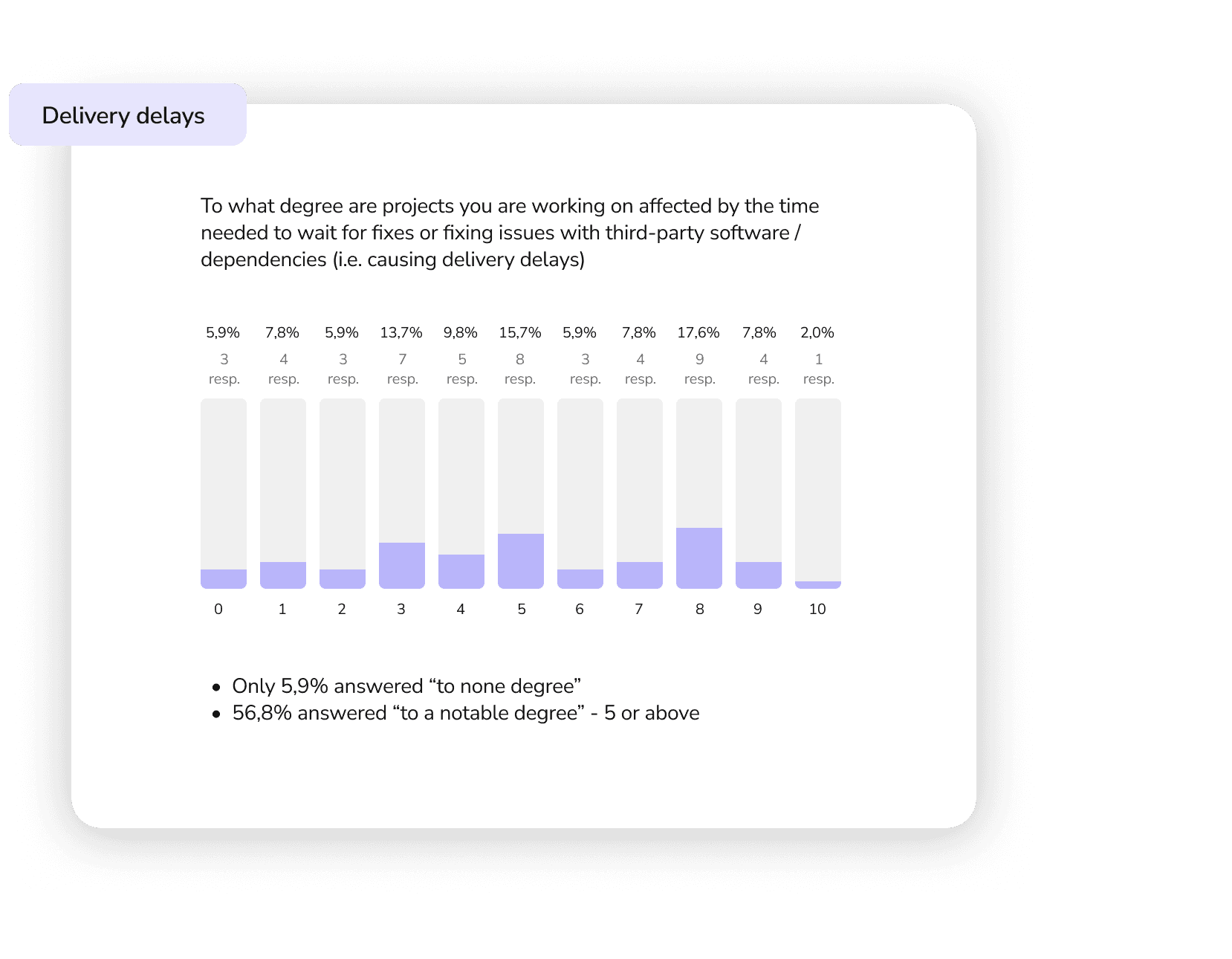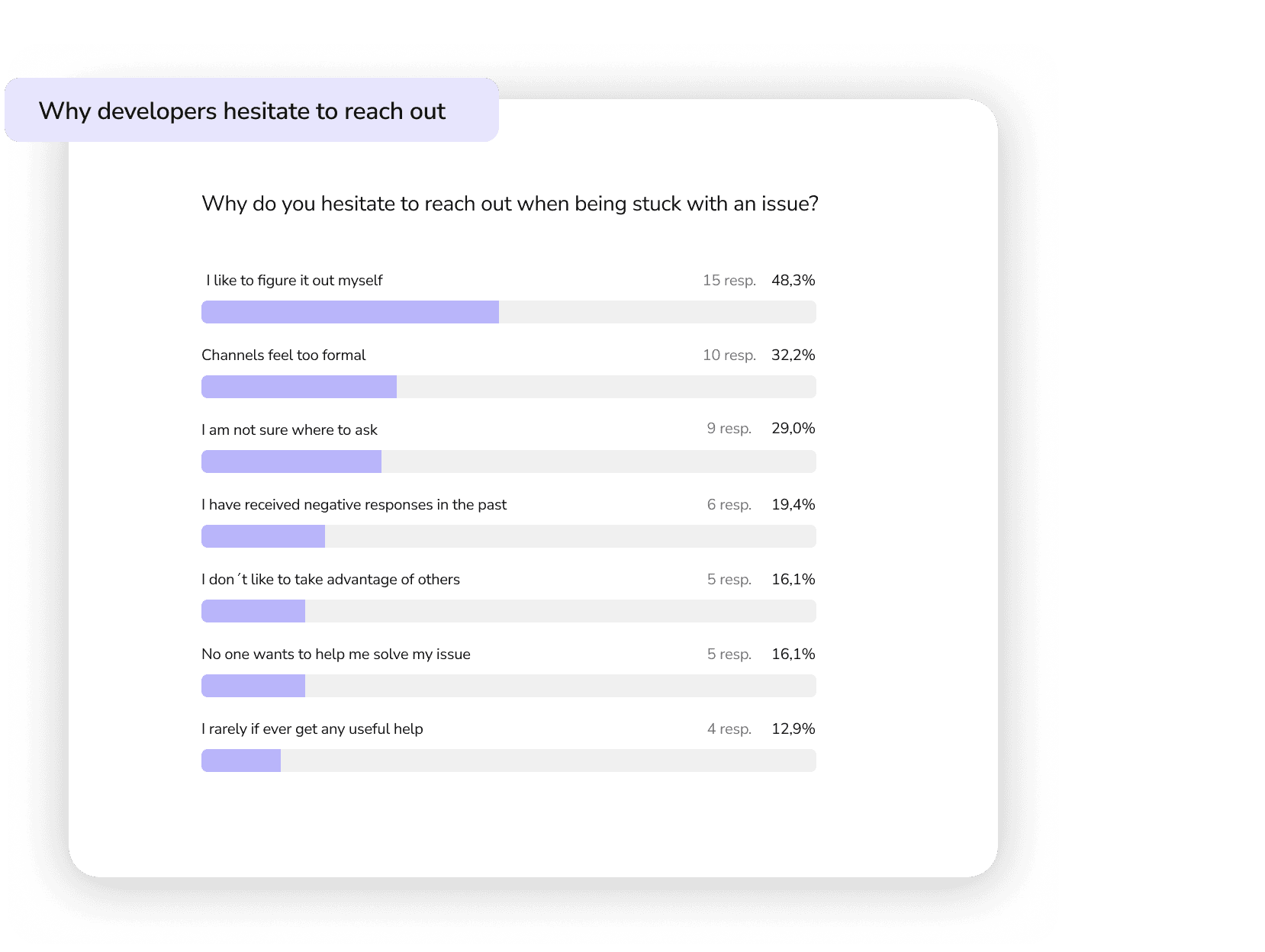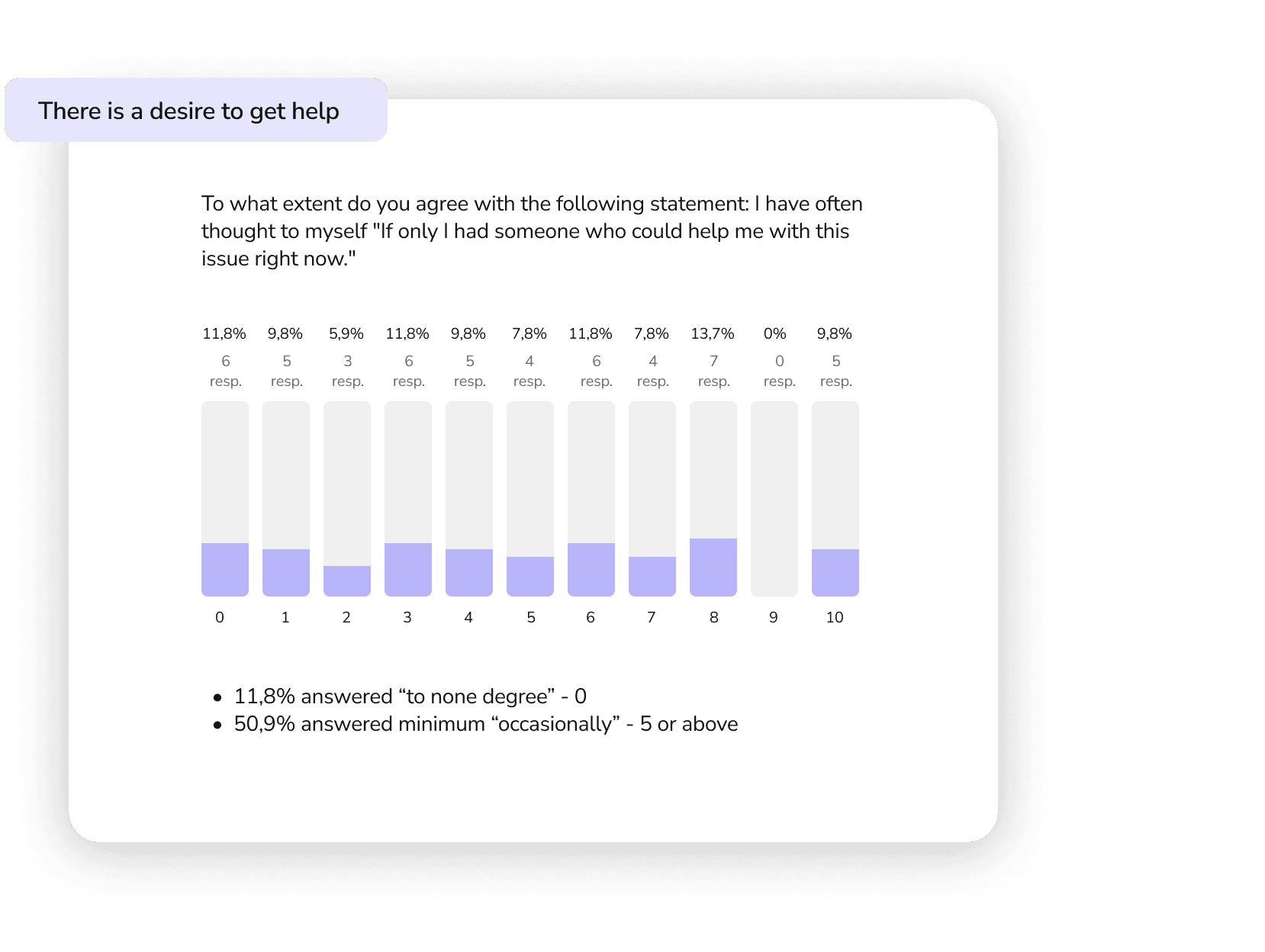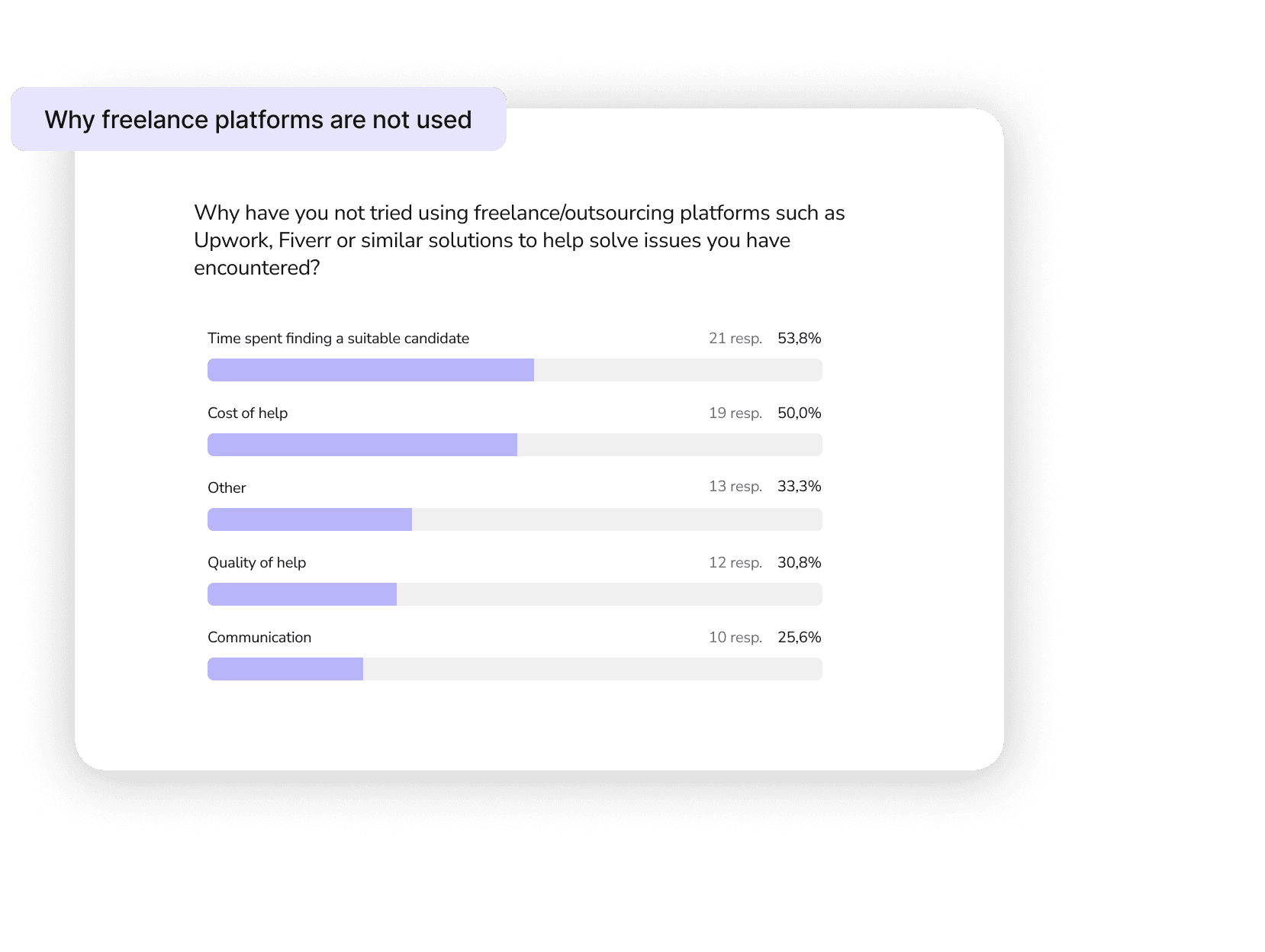We have asked 51 developers from more than 40 different companies one simple question;
How many hours each month, do you spend on issues and breaking changes?
Being developers ourselves, the answer is high, but not surprising. An average of 18 hours a month, ranging from 0 to 30. That equals 216 hours a year. If you have a developer team of 8 people, it is a whole full-time position of just being stuck.
On top you have the non-measureable indirect effects, affecting a person´s productivity and ability to stay in flow. As well as deliveries and dependencies towards other team members, that may have to wait for one developer´s issue to be solved.
No matter your competence level or experience, most developers get stuck every once in a while. That´s just the nature of the game. How often it happens and how difficult it is to get out of it, varies. Sometimes the answer is found on Google, Discord or by using AI. But had it always been that simple, developers surely wouldn´t have spent 18 hours a month being stuck.
Being stuck does not only cost resources and result in delays, it affects a company´s ability to move faster, have a higher frequency of releases, and stay on top of the competiton against its competitors. In a fast-moving world, one month of saved development is more valuable then ever.
Solving problems yourself almost always feels better than getting the answer from someone else. Sometimes that may be the right thing to do. But for a company trying to keep a high pace of releases, and have enough time for planning, pre-production and post mortems, getting quick answers can be beneficial. That could also help developers getting exposed to more problems and make them “braver” in their coding choices.
However, 31,4% thinks it is acceptable to spend minimum 16 hours on trying to solve an issue themselves before reaching out. 60,8% thinks minimum 8 hours is acceptable. Further, 62,7% hesitate to reach out for help, due to various reasons, where the desire to find a solution by themselves is the number one explanation, which may be due to the idea of being able to solve an issue within much shorter time.
Despite being problem solvers, more than half do minimum occasionally think to themselves, “If only I had someone who could help me with this issue right now”.
Even though we don´t have any numbers backing this claim, we are true believers in the fact that framework experts can contribute to higher quality code. Code that is shorter, more scalable, and more robust. Getting the best solutions on a regular basis also help to improve the technology experience for whatever you are developing, and may save the company resources in the long run, from maintenance, upgrades or breaking issues.
There are several large communities of competent developers such as Upwork or Fiverr. We have used these platforms a lot ourselves, and know how much time you have to put in order to find a suitable candidate for a task. Shortlisting, screening, interviews and tests. A process that almost always takes at least a week or two to complete, and hence is very unsuitable for quick issues or small tasks. And despite investing time and effort, one often comes out with someone who wasn´t ideal for the task atfer all.
We are not claiming these numbers are universal for all development. These are just our findings from surveying a sample of developers working for various companies internationally.
